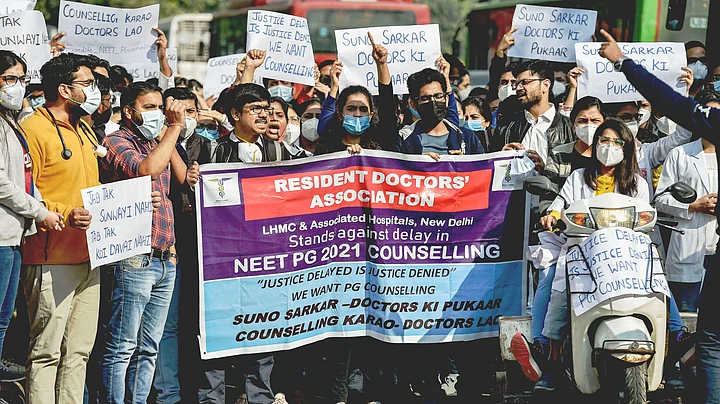The Supreme Court on Thursday, 20 January, pronounced its detailed order on the NEET PG counselling case, while upholding the 27 percent quota for Other Backward Classes (OBC) and 10 percent reservation for Economically Weaker Sections (EWS) in the All India Quota. This comes days after the court had allowed NEET PG counselling to commence along the lines of the pre-existing reservation criteria.
A bench of Justices DY Chandrachud and AS Bopanna said on Thursday that merit should be socially contextualised, and explained why the existing reservation criteria was not stayed by the court.
"Competitive exams do not reflect economic social advantage, which is accrued to some classes. Merit should be socially contextualised. Reservation is not at odds with merit but furthers it's distributive impact," the court was quoted as stating by Bar and Bench.
"Merit cannot be reduced to narrow definitions of performance in an open competitive examination, which only provides formal equality of opportunities," the court said, as per LiveLaw.
"Centre was not required to seek permission of this court before granting reservation in AIQ seats and thus their decision was correct. We hold that reservations for OBC in AIQ for undergraduate and post graduate courses is constitutionally valid," the order stated.
What Was the Case?
Pronouncing its order in the NEET PG counselling case, the Supreme Court on 7 January had upheld the existing criteria that provides for 27 percent reservation for OBC category and 10 percent reservation for EWS category for medical courses for this year.
For the EWS category, the existing criterion of Rs 8 lakh annual income was upheld for this academic year.
The order came after a plea was filed in the court challenging the reservation criteria introduced by the central government in the AIQ seats.
The Supreme Court on 25 October had told the Centre to put on hold counselling for NEET-PG until it decides the validity of the reservation criteria.
The Centre on 31 December had informed the Supreme Court that it has decided to accept the recommendation of a panel to retain the existing criteria of Rs 8-lakh ceiling for the EWS reservations for medical courses in India.
The expert committee has said that changing the EWS criteria midway through the admission process will lead to complications, and advised that the revised criteria be introduced from next year.
"In EWS, we've upheld the criteria for this year so that the admissions are not dislocated for the current academic year. We will hear the petition with respect to the EWS criteria later," Justices DY Chandrachud and AS Bopanna said on 7 January.
The court on Thursday said that the validity of criteria for determining EWS quota will have to be heard at length by the court in March this year.
"For EWS, we have said that argument of petitioners in validity of EWS was not limited to its share in AIQ but also on the basis criteria. Thus, it needs to be heard in detail," the court was quoted as saying by Bar and Bench.
(With inputs from LiveLaw and Bar and Bench)
